Introduction: In this article, Melissa Davenport Berry writes about some of the prominent abolitionist families who for many years acted as “conductors” on the Underground Railroad in Lancaster County, Pennsylvania. Melissa is a genealogist who has a website, americana-archives.com, and a Facebook group, New England Family Genealogy and History.
Recently I was asked to research a family relic that was connected to the Rakestraw-Bushong family in Lancaster County, Pennsylvania, who were Quakers. What I uncovered was an extraordinary link to some of the prominent abolitionist families who for many years acted as “conductors” on the Underground Railroad.
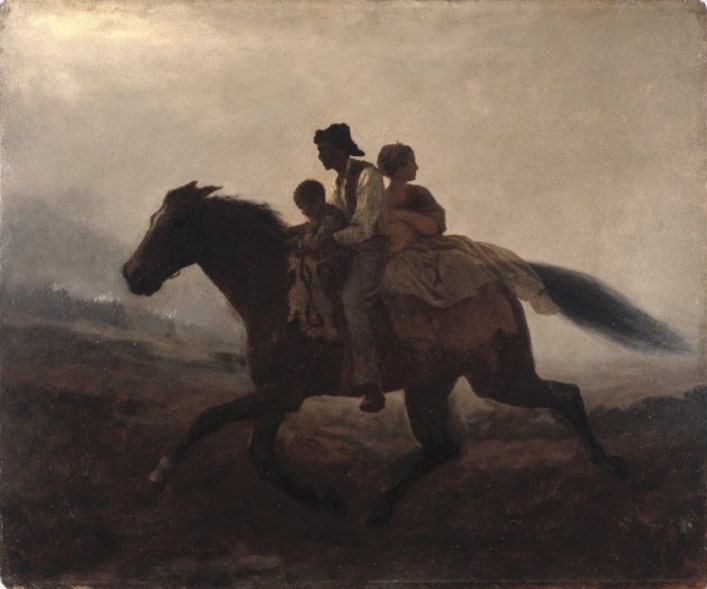
My finds in GenealogyBank’s Historical Newspaper Archives really assisted me in the sleuthing process, along with the help of Lancaster County History digital archives and a descendant, Richard B. Bushong, author of The History of the American Bushong Family. Richard runs the Bushong Family Tree United official webpage. With all this help, I was able to produce a rich and thorough provenance of the relic as well as the family who originally possessed it.
Another treasure trove connected to the family was a large photo card album entitled “Freed Slaves & Abolitionist Family Album” (Lot 0323), which sold for $19,680 at Fleischer’s Auctions’ “Civil War & African American History Collection” on 5 August 2023.
Rakestraw-Bushong Line:
Quaker Abraham Rakestraw (1799-1874), son of Thomas and Mary (Lippincott) Rakestraw, married Lydia Bushong (1807-1885) in Bart Township, Lancaster, on 12 June 1834, recorded by the Sadsbury Monthly Meeting.
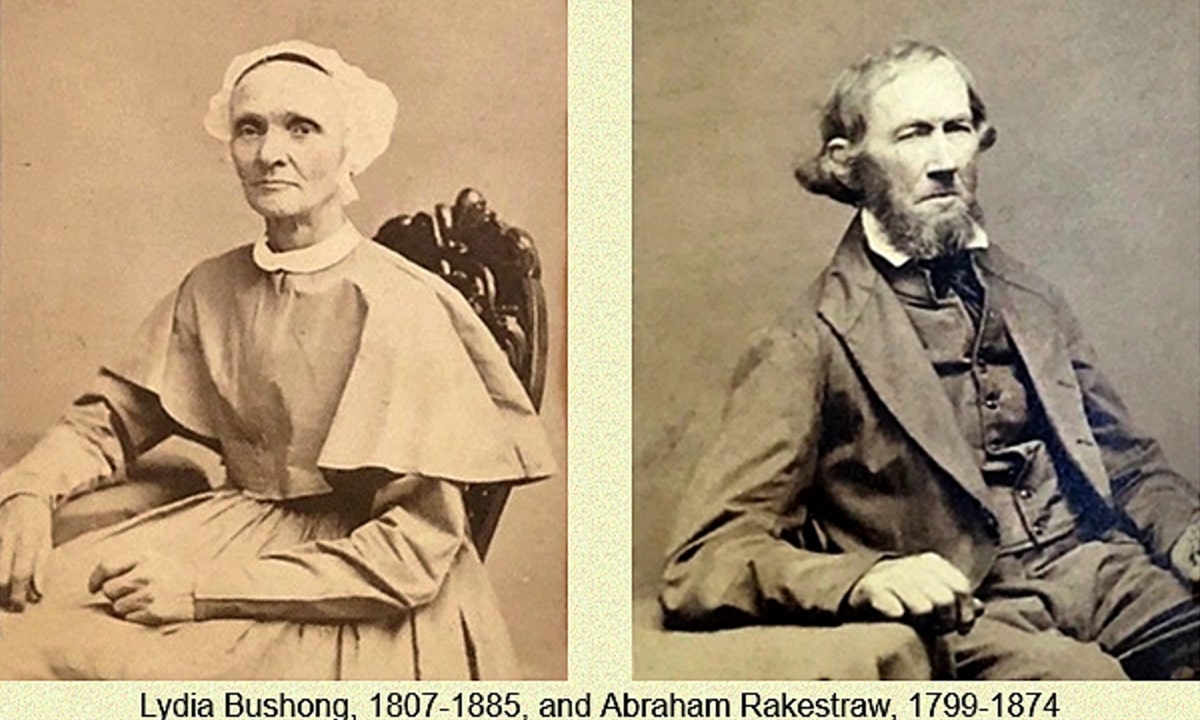
Two other photos of Lydia and Abraham exist and were sold by Fleischer’s Auctions.
Abraham Rakestraw owned a farm at Andrews Bridge, Lancaster County, and was a noted author and poet in the Quaker community.
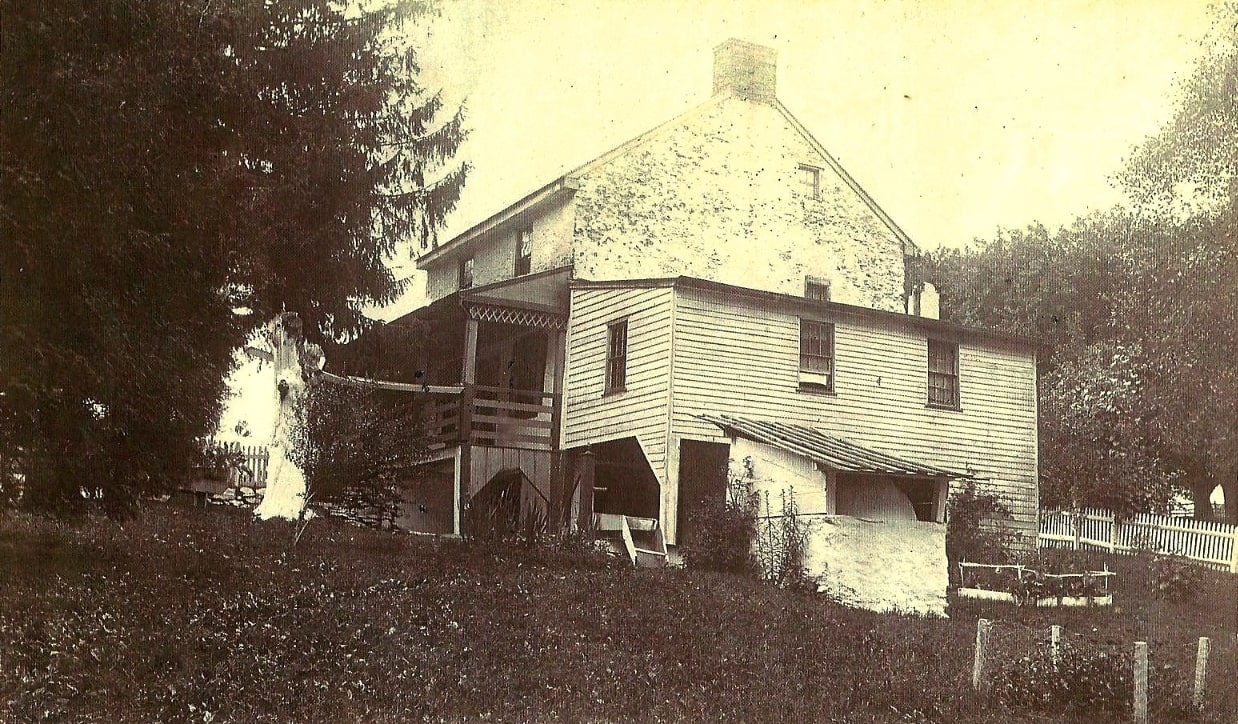
In addition to his private publications, Abraham Rakestraw also wrote editorial letters to newspapers under various pseudonyms, voicing his strong opposition to slavery. Some of his work is preserved in the family papers at Friends Historical Library at Swarthmore College.
In 1856 an organization called the Octorara Farmer’s Club was formed in Lancaster County, and Abraham Rakestraw was among the founding members. The group became active in the Underground Railroad helping several enslaved people escape to freedom.
Abraham’s wife, Lydia (Bushong) Rakestraw, was born to Henry Bushong (1783-1870) and his first wife Sarah (Gilbert) Bushong (1787-1831), daughter of Jesse and Sarah (Harding) Gilbert.
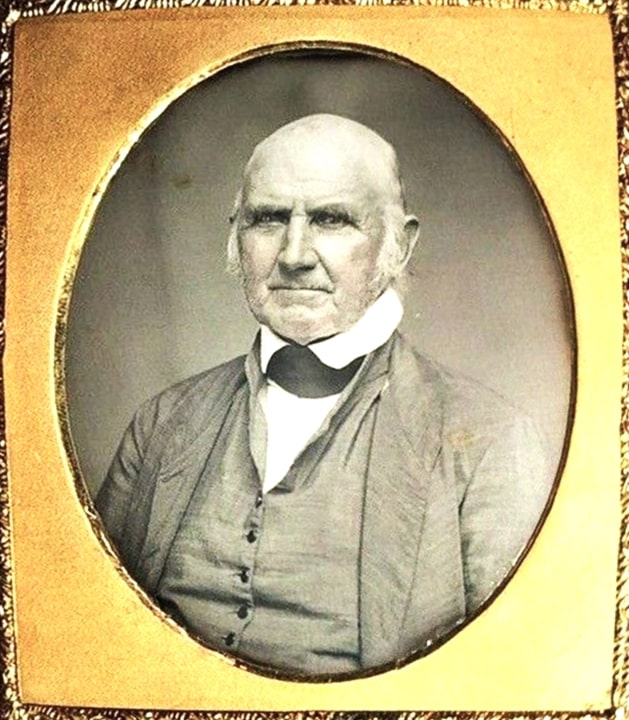
Henry Bushong is the son of Revolutionary War soldier Johannes (John) Bushong Sr. (1750-1831) and his wife Eve Dorothea (Eckman) Bushong (1755-1819). He served as the president of the Lancaster Loan Company (later the Lancaster Bank) and operated a farm and mill.
Like the Rakestraw’s, the Bushong family were also devout Quakers and active abolitionists, and are credited with manning Lancaster’s “Columbia to Christiana” branch of the Underground Railroad from their homes in and around Bart Township, Lancaster County. The family’s deep involvement in this movement can be traced to at least 1838.
During the Civil War the Bushong family welcomed fleeing African Americans at their farm on Valley Road (Route 372) in Bart Township, Lancaster County. They provided them with food, clothing, and shelter before sending them to Chester County via Christiana.
A reference to the Bushong family and the Underground Railroad is made in this newspaper article from 1883 promoting the work of Robert Clemens Smedley: “History of the Underground Railroad in Chester and the Neighboring Counties of Pennsylvania.”
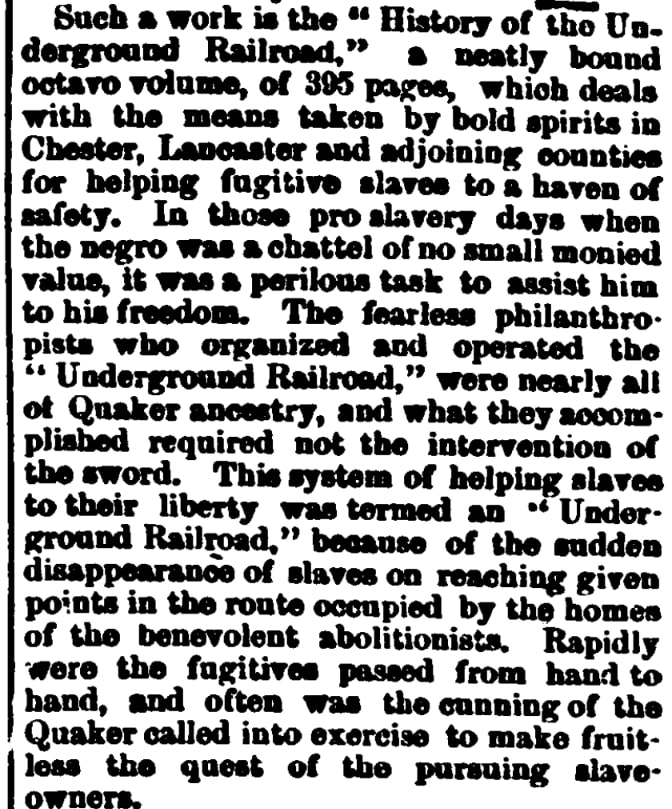
The one Bushong named in this newsclip is Henry’s son Jacob Bushong (1813-1880), who married Margaret Hobson (1818-1902), daughter of Francis and Ann (Johnson) Hobson.
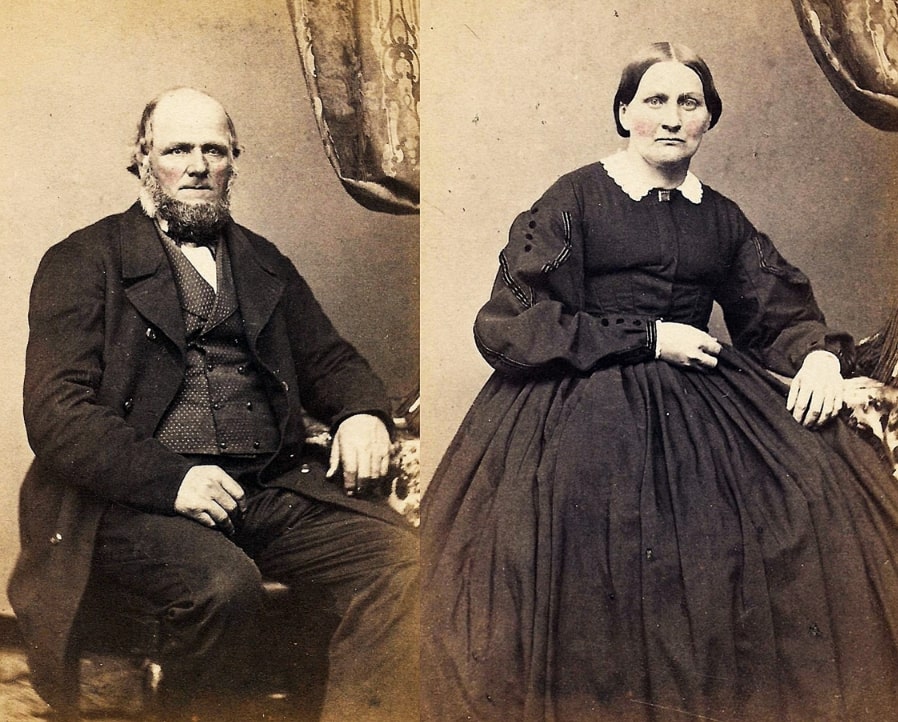
According to sources, William Wallace, an enslaved man, escaped and came to Bart Township and found work with Jacob Bushong in 1835. Within a short time, Wallace’s wife and two children came from the Carolinas to live with him, and they had another child born in Lancaster County. More on that story and other enslaved families assisted to freedom by the Bushong family up next.
Stay tuned…
Explore over 330 years of newspapers and historical records in GenealogyBank. Discover your family story! Start a 7-Day Free Trial
Note on the header image: Harriet Tubman was the most famous conductor of the Unground Railroad who worked with Quaker abolitionists in Pennsylvania. Abolitionist William Lloyd Garrison called her “Moses.” Photo: traveling exhibition for Harriet Tubman, “The Journey to Freedom,” on exhibit at Philadelphia City Hall, Pennsylvania. Credit: Wofford Sculpture Studio, LLC.
